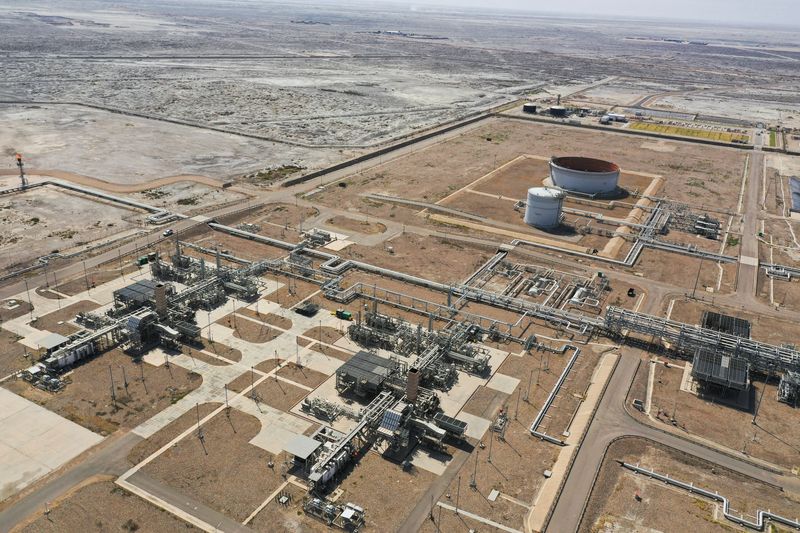(Corrects spelling of U.S. Treasury secretary’s name in paragraph 4)
By Georgina McCartney
HOUSTON (Reuters) -Oil prices were largely steady on Tuesday after the U.S. announced plans to hit Iran with new sanctions after its weekend attack on Israel, and as Israel’s war cabinet is also set to meet for the third time in three days.
futures for June delivery rose 5 cents, or 0.1%, to $90.15 a barrel by 11:10 a.m. ET (1510 GMT). for May gained 14 cents, or 0.2%, to $85.55.
Concern that Iran would respond to the April 1 strike on its embassy compound in Damascus sent Brent to $92.18 on Friday, its highest since October. But prices retreated on Monday after Iran’s attack on Israel over the weekend proved to be less damaging than anticipated.
U.S. Treasury Secretary Janet Yellen said she intends to hit Iran with new sanctions in coming days due to its unprecedented attack on Israel, and it could seek to reduce Iran’s capacity to export oil.
“With respect to sanctions, I fully expect that we will take additional sanctions action against Iran in the coming days,” Yellen said, adding that Iran’s oil exports “remains in focus as a possible area that we could address.”
Israel’s war cabinet was set to meet for the third time in three days on Tuesday, an official said, to decide on a response to Iran’s attack, amid international pressure to avoid further escalating the conflict in the Middle East.
“Israel’s war cabinet meeting for a second time in under 24 hours to assess how to respond to the attack is keeping oil markets jittery”, Fiona Cincotta, senior financial market analyst at City Index said.
“However, any further developments regarding retaliation could raise the risk premium on oil, particularly given Iran’s position as OPEC’s third-largest producer”, she added.
Iran produces more than 3 million barrels per day of crude oil as a major producer within the Organization of the Petroleum Exporting Countries.
Iran will respond to any action against its interests, President Ebrahim Raisi was reported as saying by the Iranian Student News Agency a day after Israel warned it will respond to Tehran’s weekend drone and missile attack.
“The balancing act between sticky inflation, a hesitant Fed and the gradual move towards a full-blown regional conflict keeps oil … in its range,” said Tamas Varga of oil broker PVM.
“Material disruption to oil production, supply or shipping must take place to approach the $100 a barrel milestone. Currently such a development appears implausible,” he added.
Investors also await weekly U.S. oil stocks data from the American Petroleum Institute (API), released later on Tuesday.
U.S. crude and distillates stockpiles were seen rising last week, while gasoline likely drew down, a preliminary Reuters poll showed on Monday. [EIA/S]
